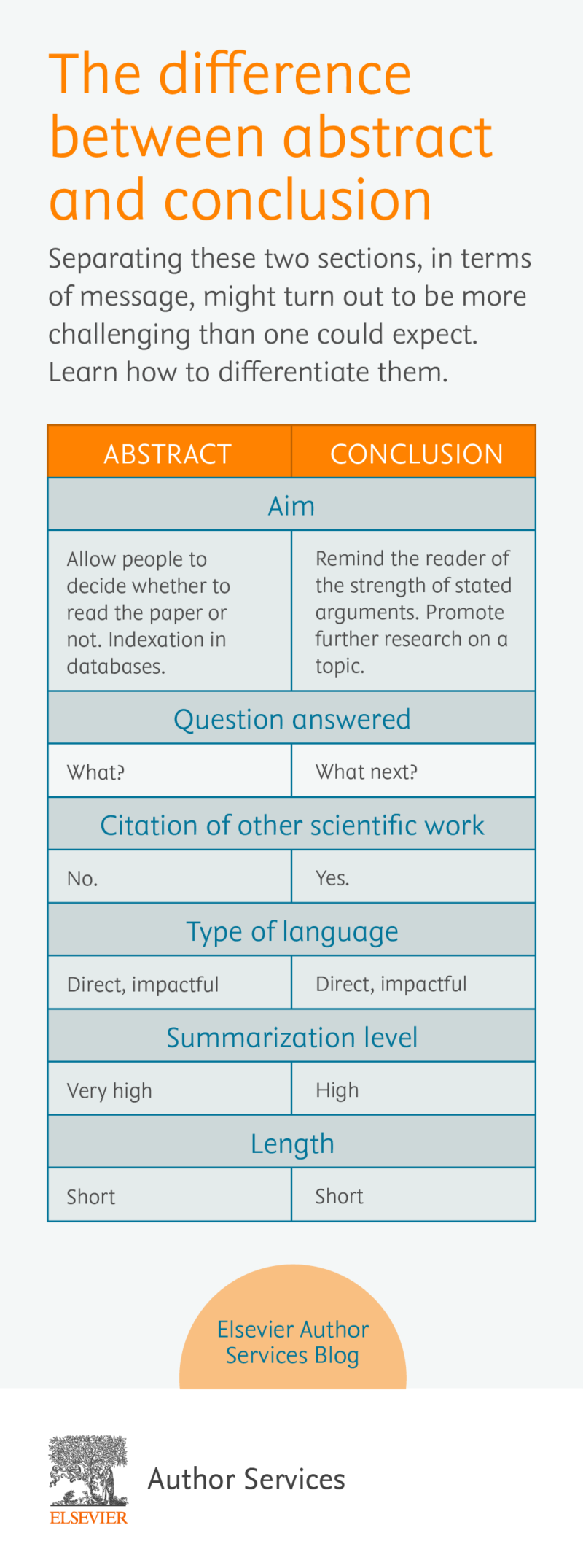Table of Contents
Ready, set… wait! Having new research to share with the world is something truly amazing: standing just a few pages away of stirring science in a way that could actually generate effective changes in society as we know it. But the time comes when we, as authors, need to put excitement aside and stop to think the expectations of how to present our ideas. Sharing knowledge in academia is just like anything else in life. It takes discipline to follow certain rules, criteria, and guidelines to be clear and efficient about our message, in the end.
The large majority of scientific papers are organized under sections, with a specific order, that help readers recognize and follow the author’s train of thought. The most important ones, following the well-known IMRaD structure, include:
- Introduction
- Methods
- Results
- Discussion/Conclusion
In this article, however, we will focus on a section outside the paper’s main body, but essential to most scientific output formats: the abstract. A good abstract constitutes a fundamental tool to get attention for our work among scientists in the same field of study. Moreover, let’s also learn how to differentiate it from the conclusion, since separating these two sections, in terms of message, might turn out to be more challenging than one could expect.
What is the abstract of a paper?
Abstracts are independent short texts – generally, not exceeding 10% of the paper’s length and/or 250 words – where the main purpose is to capture the essence of a paper to let people decide quickly if it’s of their interest or not. At the same time, a good abstract should also generate curiosity and excitement among an audience by making the proper impression upon the target reader. In other words, abstracts must be more than plain descriptions of their related paper’s contents; above all, they should be powerful statements enhancing the scientific novelty of the research and its importance for science in general. In most abstracts, main findings and key questions for further discussion are included in order to stress, once more, the relevance of the presented work.
In general, it’s important to specify the topic, aim and scope of your research in the abstract. The vast majority of journals select papers for publication just by reading their abstracts. Hence, if you are in the process of submitting your paper to a journal, it is vital that you check the journal’s guidelines before you embrace the task of writing one. They may vary a lot, from publication to publication.
Other than selection, another main purpose of an abstract is to allow the indexation of larger works in academic and scientific databases. Careful word selection, and a handful of clever keywords, will make an effective difference whether your paper jumps easily before the eyes of those who want to read it, or in the contrary, remains forever hidden among many, many others.
Check these tips for choosing right keywords for your manuscript.
Knowing the rules, using the right language and producing a flawless text are all key to rendering a perfect abstract. On the one hand, you need very good summarizing skills to provide a clear and general overview on your main topic and arguments. On the other hand, an abstract should also contain powerful and meaningful words to create curiosity and excitement about your paper. Don’t forget to revise your abstract constantly – in Elsevier, our team of professional text editors and revisors can help you achieve the perfect balance that could be that extra nudge to skyrocket your science career.
What is the conclusion in a research paper?
Unlike the abstract, the conclusion is the last part of the main body of a paper or thesis. It is where a researcher actually answers the big question that impelled him or her to undertake the research project in the first place. However, despite of the different roles that an abstract and conclusion play in a scientific paper, many aspects in drafting a conclusion can actually relate to writing an abstract:
- Length – Both abstract and conclusion shouldn’t be very long.
- Concise character – Their content must be clear and expertly summarized, underlining important ideas and avoiding redundancy.
- Impactful language – Both sections are ideal to call attention to your work as a scientist. By using the right words, it is possible to point out how relevant your paper can be in the scientific community.
A conclusion must always start by addressing the main topic of the thesis, in order to remind the reader “where it all began.” The next step is to briefly bring forward results previously discussed at some point in the paper, however not too extensively. The aim is to put everything on the table in order to finish the line of thought presented throughout the document. Furthermore, in a conclusion section, it is not only important to bring forward results and findings but, above all, stress their significance. Add impactful language and construct clear, but solid statements. This tone should be strong enough to inspire other researchers to follow your work in the future, and to enhance your chances of growing into a respected scientist among your peers.
| Abstract | Conclusion | |
| Aim: | Allow people to decide whether to read the paper or not. Indexation in databases. | Remind the reader of the strength of stated arguments. Promote further research on a topic. |
| Question answered: | What? | What next? |
| Citation of other scientific work: | No. | Yes. |
| Type of language: | Direct, impactful | Direct, impactful |
| Summarization level: | Very high | High |
| Length: | Short | Short |

Elsevier offers the right support for researchers who want to produce perfect manuscripts. With our Language Editing Plus Service, our team of language experts will pay special attention to the logic and flow of content, adjusting your document to meet your personal and professional needs. Besides professional text editing, we offer reference checking and customized cover letters. All of this is included with unlimited rounds of language review and full support at every step of the submission process. Use the simulator below to check the price for your manuscript, using the total number of words of your document.













